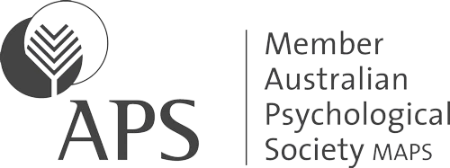Why this is not just therapy
Many of our clients come to us after feeling unseen or spiritually dismissed in traditional counselling. We offer a different path – one that integrates neuroscience and spiritual insight to support survivors of narcissistic and spiritual abuse.
Our focus is on real, lasting healing – not just therapy. We help people recover from controlling, manipulative, or emotionally harmful relationships, including domestic violence and high-control dynamics.
For those who value faith, we also offer Christian counselling. Rooted in evidence-based methods, our approach empowers deep transformation. While this is our specialty, we also support a broad range of other concerns.
services
What Kind of Support Are You Looking For?
Some people come to us with a clear need in mind, while others are still working out what kind of support fits best. Either way, we're here to help.
The services we offer
Individual Counselling
A safe and supportive space to explore your thoughts, feelings, and goals - at your own pace.
Christian Counselling
Therapeutic support that integrates psychological insight with Christian faith and values, if this is important to you.
Teleheatlh
Remote sessions via video conferencing or phone which increase access and convenience.
Couples Counselling
Support for couples navigating conflict, communication difficulties, or relationship transitions - whether you're together, separated, or unsure.
Psychological Assessments & Reports
Tailored to support access to services such as the NDIS or Disability Support Pension (DSP), or to guide education and support planning.
What we can support you with
Mental Health Concerns
Struggling with your thoughts, mood, or mental health?
- Anxiety, including panic attacks and OCD
- Depression and mood disorders, including bipolar
- Post-Traumatic Stress Disorder (PTSD)
- Personality vulnerabilities and disorders
Life Challenges
Feeling under pressure or going through something difficult?
- Ongoing stress or burnout
- Recent or past trauma
- Grief and loss, whether sudden or prolonged
- Health concerns and chronic illness management
- Parenting struggles or family role strain
- Difficulties at work
- Men’s issues
Relationship Issues
Facing tension, distance, or disconnection in your relationships?
- Communication breakdowns or constant conflict
- Separation, divorce, or family breakdown
- Feeling emotionally unseen or unsafe
Recovery From Mistreatment
Trying to rebuild after harm or betrayal?
- Narcissistic abuse and coercive control
- Domestic and family violence
- Elder abuse or carer stress
- Spiritual abuse or harm within faith communities
Desire for change
Ready to shift something that’s holding you back?
- Addictive behaviours or substance use
- Unhelpful patterns or habit
- Building assertiveness and boundaries
- Navigating big life changes or transitions
How we work
Practical and Skills-Based Therapies
These focus on helping you manage thoughts, emotions, and behaviours in everyday life.
- Cognitive Behaviour Therapy (CBT)
- Person Centred Therapy
- Solution-Focused Brief Therapy (SFBT)
- Interpersonal Therapy (IPT)
Deeper and Insight-Oriented Therapies
These approaches help you understand patterns, heal from past experiences, and strengthen your sense of self.
- Narrative Therapy
- Schema Therapy
- Attachment-based therapy
- Interpersonal Therapy (IPT)
Trauma-Informed Therapies
For those recovering from trauma or complex experiences, we offer sensitive and structured approaches to help you feel safe and supported.
- EMDR (Eye Movement Desensitisation and Reprocessing)
- Exposure Therapy (used carefully and only when you're ready)
Neuroscience-Informed Therapies
We incorporate the latest scientific understanding of how the brain and nervous system respond to stress, trauma, and emotions. This helps us tailor treatments that support your brain’s natural ability to heal and regulate.
- Techniques to improve emotional regulation and reduce symptoms of anxiety and trauma
- Methods that promote nervous system balance and resilience
- Practical tools to reconnect mind and body for overall wellbeing
Payment and funding options
Individual session payment
Each appointment is paid for separately, offering you flexibility and no ongoing commitment—so you can engage at a pace that suits you.
Therapy Packages
Investing in a package offers a structured pathway to meaningful progress - combined with extra value through tailored options like convenience, additional resources, and practical support to suit your needs.
Third-party funding options
We accept a range of third-party payees - including NDIS, WorkCover, DVA, and Medicare - and we’ll guide you through the process to ensure your funding arrangements are clear and manageable, so you can focus on your wellbeing.





FAQ
Why choose online counselling?
- Save time and money: No travel time or expenses.
- Convenience: The comfort of your own safe space
- Location: Access our support from anywhere in Australia.
- Learn More
Can I claim counselling or psychology sessions on my private health insurance?
Many private health funds offer rebates for sessions with registered psychologists or counsellors as part of their extras cover. It’s a great way to reduce your out-of-pocket costs and make the most of your policy. Check with your fund to see what’s included in your cover.
How long will counselling take?
This varies for everyone depending on your goals and circumstances. Some people notice improvements quickly, whilst others prefer longer-term support. We’ll regularly check in about your progress and adjust our approach as needed. You’re in control of how long you’d like to continue.
Is everything I share completely confidential?
Yes, all sessions are strictly confidential under Australian privacy laws. Your information is protected and secure. In rare cases where there’s a serious risk of harm, we may need to take action, but this would be discussed with you first.
What’s the difference between a psychologist and a counsellor?
Psychologists (AHPRA-registered) offer assessment, diagnosis, and treatment for complex mental health concerns. Counsellors (ACA-registered) provide flexible, evidence-based support for emotional and relational issues.
We offer both, so you can access the right fit for your needs.
Do I need to be religious to see you?
No, our services are for everyone regardless of their faith background. We offer Christian counselling for those who want it, but you can choose whether to include spiritual elements in your sessions or keep them entirely secular.
How can therapy help with past abuse or trauma?
Abuse and trauma can disrupt your sense of safety, identity, and connection with others. These experiences often leave emotional and physiological imprints that don’t just go away with time. Therapy offers a safe, structured space to process what’s happened — by helping you make sense of it, you can regain a sense of control and build new ways of coping.
Trauma therapies can reduce symptoms such as anxiety, intrusive memories, emotional overwhelm, and difficulty trusting others. Over time, many people find they reconnect with themselves, feel more grounded, and experience relationships in healthier, more empowering ways.
I’ve tried therapy before and it didn’t help - how is this different?
Therapy works best when you feel understood and connected with your counsellor. We recognise that every person’s needs and preferences are unique, which is why we offer flexible options — from individual counselling to specialised packages — to better match your style and goals.
Our approach combines evidence-based methods with practical strategies designed to create real, lasting change, not just talk. Together, we’ll find the right fit and pace to support your journey forward.
How is Christian counselling different from regular therapy?
Our Christian counselling uniquely integrates faith and therapeutic practice, offering a space where your spiritual beliefs guide healing and growth. This approach is designed specifically for those seeking support that aligns with their Christian values.
For those looking for psychology services, we provide evidence-based care that is secular and inclusive, ensuring everyone can access the support that best fits their needs.
What is spiritual abuse and how does it affect survivors?
Spiritual abuse occurs when someone misuses religious or spiritual authority to control, manipulate, or shame others. Survivors may experience guilt, confusion, and a fractured sense of faith. Learn more about spiritual abuse in this article.
How can co-therapy improve couples counselling?
Co-therapy offers balanced support by ensuring both partners feel equally heard in a safe, unbiased space. With two therapists bringing diverse expertise and perspectives, couples benefit from deeper insight into their relationship dynamics.
This approach models healthy communication and provides stronger support, especially for complex issues like trauma or high conflict, helping couples move toward lasting, meaningful change.
Why is narcissistic abuse so damaging?
Narcissistic abuse targets your sense of self by manipulating, belittling, and controlling you – often through gaslighting, emotional neglect, and relentless criticism. This erodes your confidence, distorts your reality, and creates deep emotional wounds that can affect your mental health, relationships, and overall well-being. Recovery requires compassionate, specialised support to rebuild trust in yourself and others.
How does narcissism affect people in relationships?
Narcissism is a trait marked by a grandiose preoccupation with self, a sense of arrogant entitlement, attempts to exploit or control others, and a lack of empathy. It can deeply affect partners, family, and friends through manipulation and emotional neglect, which causes confusion, and lasting self-doubt. Learn more about narcissism in our narcissistic abuse glossary.
What are the signs of narcissistic abuse in relationships?
Survivors of narcissistic abuse often experience manipulation, criticism, gaslighting, and emotional neglect. These patterns can erode self-esteem, create anxiety, and foster confusion about one’s reality. See key terms and explanations in our narcissistic abuse glossary.
What are the effects of narcissism on the mental health of those around them?
Narcissism in close relationships can significantly affect mental health of the people around them, potentially leading to anxiety, depression and trauma symptoms. Therapy can help survivors regain emotional well-being. Additionally, structured programs like our Get F.R.E.E. program provide steps to regain stability, confidence, and reclaim your identity.
Trauma therapies can reduce symptoms such as anxiety, intrusive memories, emotional overwhelm, and difficulty trusting others. Over time, many people find they reconnect with themselves, feel more grounded, and experience relationships in healthier, more empowering ways.
What is gaslighting and how does it affect survivors?
Gaslighting is a manipulation tactic in narcissistic relationships that distorts reality and creates self-doubt. Survivors may feel confused, question their memory, and lose trust in their perceptions. Learn more in our narcissistic abuse glossary.
How do I recover from narcissistic abuse?
Recovery involves acknowledging the abuse, understanding its effects, and taking steps to undo the damage caused. Evidence-based therapies, including CBT and EMDR, help survivors rebuild self-esteem and restore emotional wellbeing. Structured programs such as our Get F.R.E.E. program offer a guided path to restore stability, rebuild confidence, and reclaim your sense of self.

Take the first step toward healing
Schedule your initial consultation today
Together, we’ll explore your unique journey and discover how our specialised approach can support and guide you toward true wholeness.
